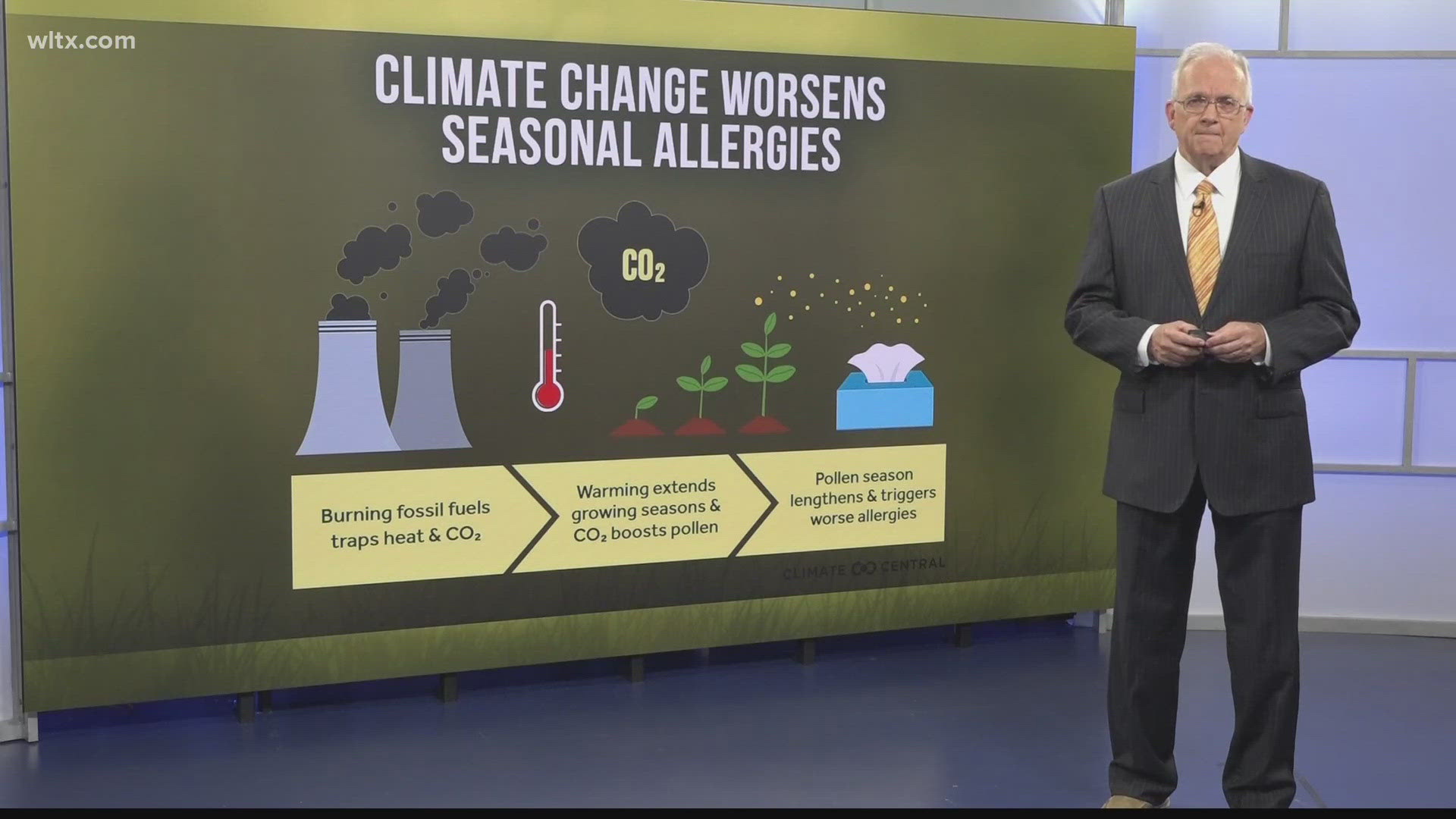COLUMBIA, S.C. — South Carolina is a wonderful place to live unless you suffer from seasonal allergies. If you do, then this is a challenging place to live. About 25% of South Carolinians suffer from the pollen season and it is getting worse.
Our climate is warming from human-caused pollution. The spring average temperature has warmed 2.8˚F in Columbia, SC since 1970. This warming has caused the growing season to lengthen and it is 29 days (about 4 weeks) longer than 54 years ago. In addition, the increase in atmospheric carbon dioxide has caused plants to produce more pollen. As pollen counts increase, more people are affected by seasonal allergies from a dosing effect. Thus, the pollen season is getting longer and more intense, which in turn makes allergies worse.
A recent study from the University of Michigan found that the warming trend and increased carbon dioxide emissions were the main drivers in increasing pollen counts. Climate alone did little to change the counts. It also found that on our current path for emissions that pollen counts could increase up to 200% by the end of the century. Pollen seasons will get worse even if we do not reach near those levels.
The growing season began early this year as the last freeze in Columbia, SC was on February 25th. This was the third earliest last freeze since 1948. Pollen began increasing in late January and reached a maximum in March.
March and April usually have the highest counts and this year it has been averaging above normal.
There are three phases to the pollen season in South Carolina. The first phase is tree pollen which dominates in the spring. This transitions to the grass during the summer season, with much of this coming from the mowing that takes place. The counts do decline to a moderate level. Then there is a surge in September as weeds dominate. The pollen season in Columbia, SC is usually from the end of January to mid-November.
This is an example of climate change becoming a health issue. Addressing climate change will help stabilize pollen counts. If we can do that, it will help prevent pollen seasons from getting worse.

